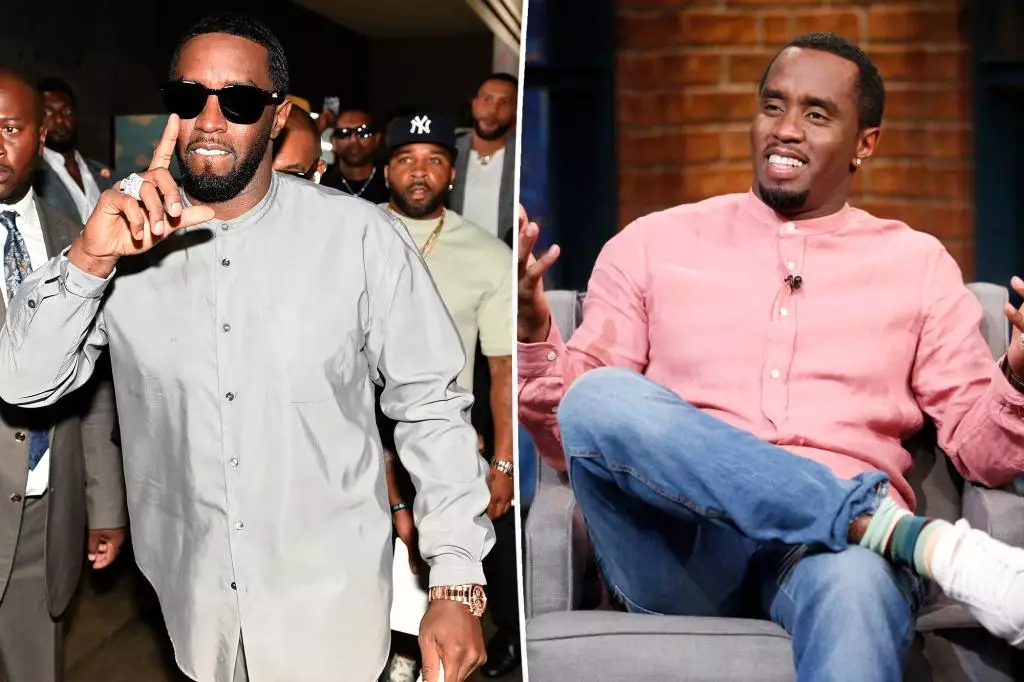The legal issues surrounding Sean “Diddy” Combs have taken a complicated turn, as federal prosecutors lay out a series of serious allegations involving sex trafficking, intimidation, and attempts to manipulate the judicial process. This piece delves into the heart of these claims, scrutinizing the implications of his actions since his detention in Brooklyn’s Metropolitan Detention Center. As the case unfolds, the nature of Combs’s alleged behavior brings to light significant concerns regarding ethical conduct and the integrity of the legal proceedings.
Central to the prosecution’s case is the argument that Combs has exploited prison regulations to facilitate covert communications. Prosecutors assert that he has used the telephone accounts of at least eight other inmates to evade monitoring, implying a calculated attempt to manipulate the circumstances surrounding his trial. Compounding these assertions, claims have emerged that he compensates these inmates through payment processors or commissary deposits to secure their accounts. This raises questions about the lengths to which he is willing to go to maintain contact with individuals who may provide him with crucial support or information.
Moreover, the allegations highlight that he has not only communicated with family and counsel but has also instructed these contacts to include additional participants via three-way calls. Such actions, in violation of Bureau of Prisons regulations, suggest a deliberate strategy to obscure potentially damaging conversations from legal scrutiny. As explained in the filing, the consistent flouting of prison rules indicates a troubling disregard for legal boundaries that may extend to his conduct in the outside world as well.
Beyond mere communications, the prosecution points to what they describe as a “public relations” strategy orchestrated by Combs to sway public opinion and potentially affect the jury’s perspective. Prosecutors refer to a carefully staged birthday celebration for Combs that involved his children posting videos on social media. The aim, they argue, is to create a favorable narrative that could influence the public and the jury pool alike.
This tactic raises ethical questions about the intersection of celebrity culture and legal processes, particularly the extent to which a defendant can use their public persona to shape perceptions surrounding serious criminal allegations. Combs’s maneuvering could serve as a double-edged sword: while he attempts to craft a positive image, it may simultaneously be interpreted as a transparent effort to undermine the fairness of his upcoming trial.
Perhaps the most alarming aspect of the case is the prosecution’s allegation that Combs intends to resort to blackmail and intimidation against victims and witnesses. The court documents suggest that he may be using his influence to coerce silence or to elicit favorable testimonies that would tilt the trial in his favor. Such claims, if substantiated, could not only complicate his legal situation further but also have damaging repercussions for any involved parties.
The potential implications of his alleged behavior present a troubling portrait of a high-profile figure leveraging both wealth and fame as tools for manipulation. The prosecution’s allegations serve as a stark reminder of the power dynamics often at play in cases involving celebrity defendants. It raises broader societal questions regarding accountability and justice, particularly when powerful individuals are implicated in egregious offenses.
Combs faces multiple serious charges, including racketeering conspiracy and sex trafficking. The claims relate to disturbing allegations of hosting illicit gatherings where individuals were coerced into sexual acts. His denial of wrongdoing and plea of not guilty add layers of complexity to an already intricate legal scenario. The stakes remain high as the trial date, set for May 2025, draws nearer. The intertwining of celebrity, media attention, and serious criminal accusations creates a volatile atmosphere that will undoubtedly test both the legal system and public discourse.
The allegations against Sean “Diddy” Combs encapsulate a multifaceted narrative involving manipulation, public relations, and serious legal infractions. As the case progresses, it remains imperative to examine both the ethical implications of celebrity influence within judicial proceedings and the broader societal impact of such high-profile accusations. The outcome of this case could set significant precedents for how similar situations are dealt with in the intersection of law and public life.

